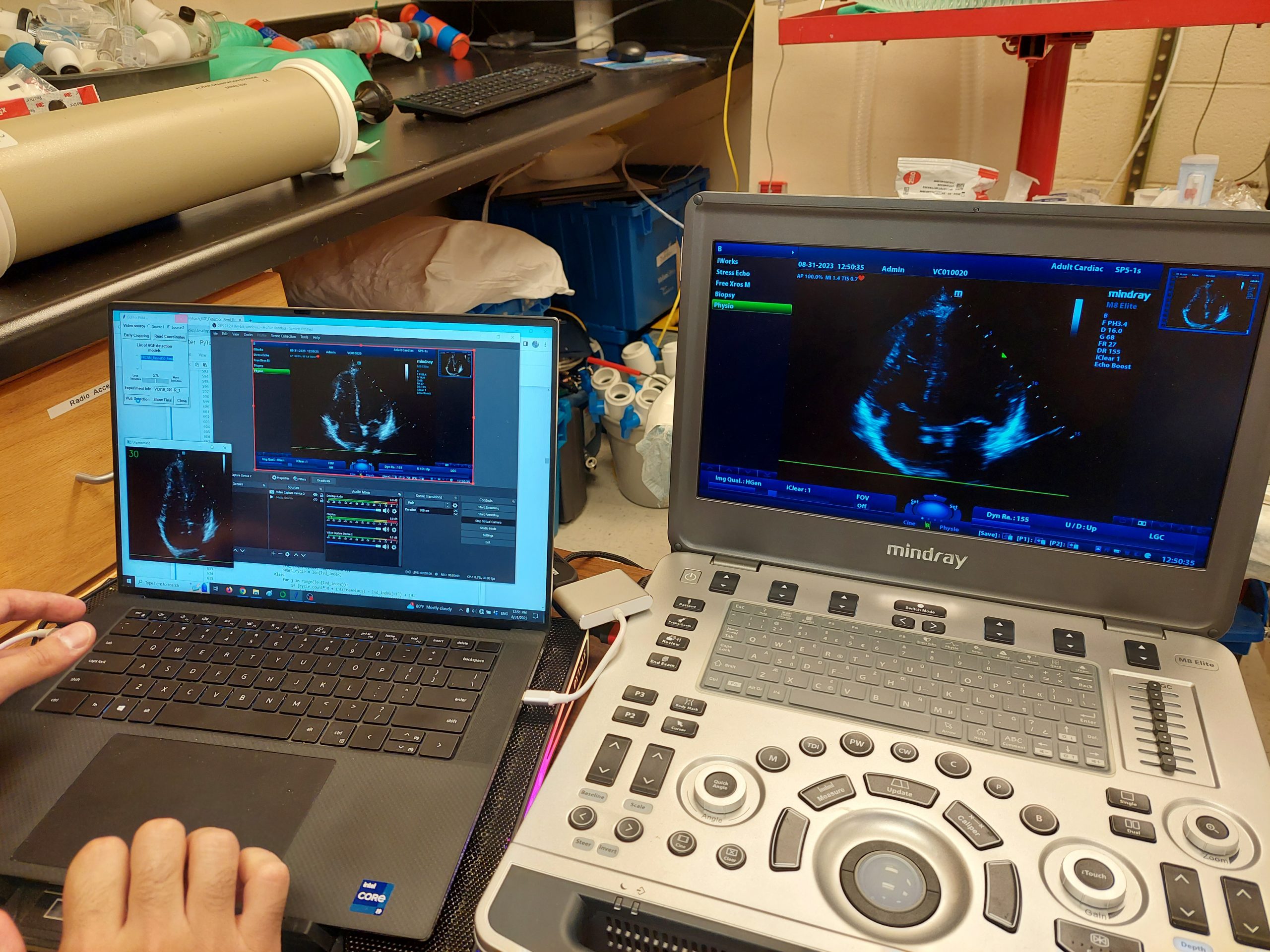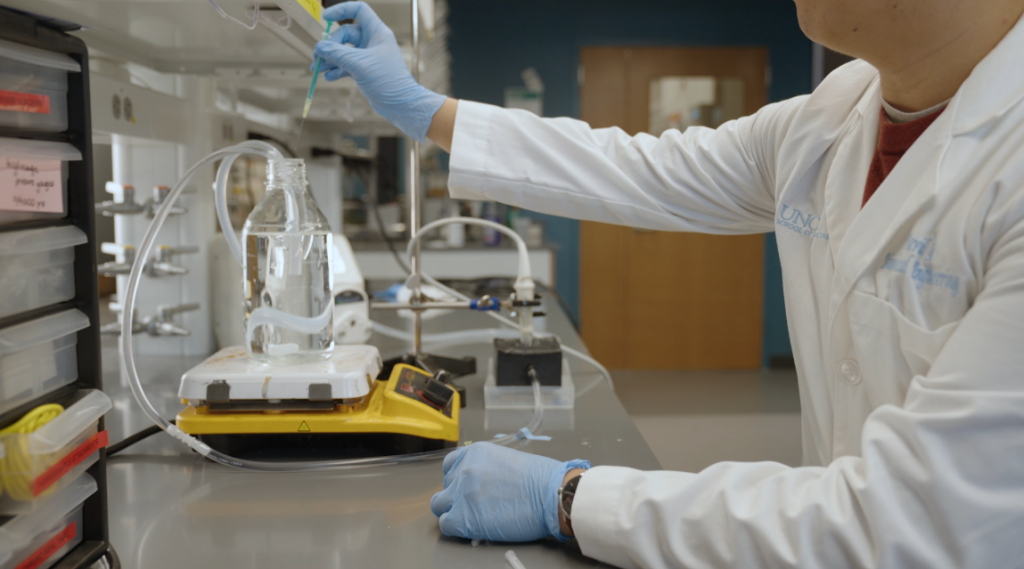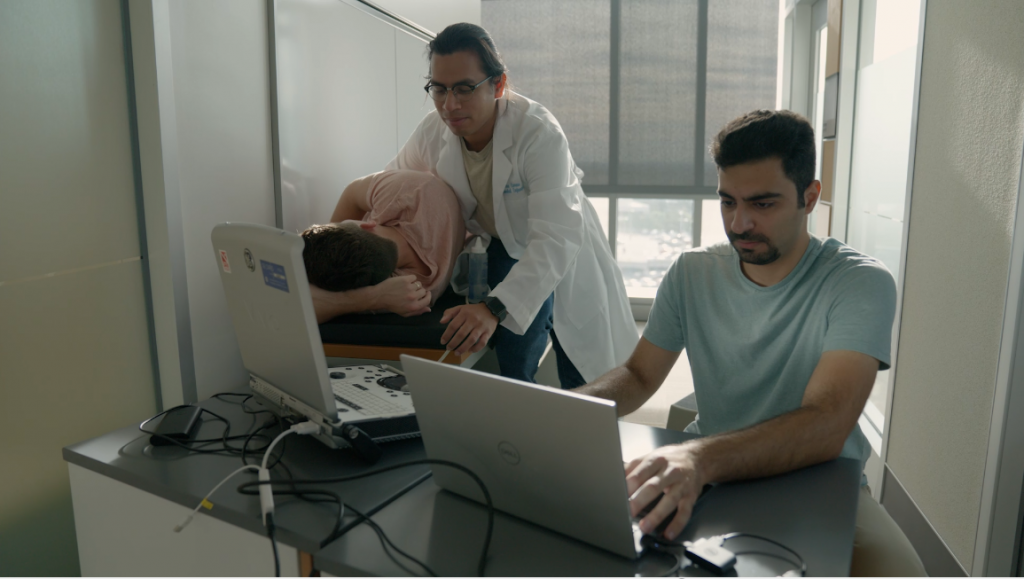About
ENHANCE was established in 2024 as a new ultrasound lab between Radiology and Biomedical Engineering at UNC Chapel Hill.
Led by Dr. Papadopoulou, our lab aims to advance biomedical ultrasound for human performance. Our research interests are centered around ultrasound and microbubbles, their detection and gas physiology modulation in vivo, and their applications in addressing today’s needs in biomedical disease and human performance applications. Our laboratory collaborates widely with others, integrates research with substantial outreach and education components, and prides itself on stakeholder engagement to increase our impact. Our members drive our vision and take on leadership positions to advance our research and education missions.

Research Capabilities
Computational
Our computational work includes gas pharmacokinetic modeling, decompression algorithms, as well as ultrasound image processing and deep learning. We have high performance computers in house and additional resources through UNC's Longleaf Cluster.

Laboratory
Our laboratory space in Mary Ellen Jones includes programmable ultrasound systems and benchtop flow experimental setups for ultrasound experiments in tissue mimicking materials. We also have in vivo ultrasound and decompression experiments capabilities.

Human
Our work includes human decompression experiments in hyperbaric chambers and in the field. We are also setting new clinical collaborations for translational research with colleagues within UNC's School of Medicine.
Our translational efforts include collaborations with industry where appropriate and stakeholder engagement.

Research Directions
Clinical Applications
On the contrast-enhanced ultrasound side, we work on translational research in gas and drug delivery. Supported by the North Carolina Biotechnology Center (NCBC) and the National Institute of Health (NIH), our team is working on enhancing the efficacy of antibiotics in MRSA-infected diabetic wounds. We will be expanding our theranostic program to target internal biofilms, as well as study vascular remodeling and cavitation feedback longitudinally as response-predictors for clinical outcomes.
Human Performance
The overarching goal of our research in human performance is to tailor ultrasound technologies to (a) study the short and long-term cardiovascular adaptations that result from extreme environmental physiology exposures, and (b) leverage this understanding for human performance by developing personalized preconditioning interventions to mitigate adverse effects, as well as the imaging and statistical tools to predict and monitor their effectiveness in real-time. Our primary focus to date, supported by the Office of Naval Research (ONR) and the Divers Alert Network (DAN) research foundation, has been on underwater human physiology and decompression sickness mitigation. We will be expanding this line of research to other austere environments (e.g. space, battlefield) and tie in contrast-enhanced ultrasound to study applied exercise and environmental physiology.
Join the ec(h)osystem
Opportunities to get involved: We are currently recruiting postdocs, PhD students and undergraduates. We always welcome new collaborators and visitors.
